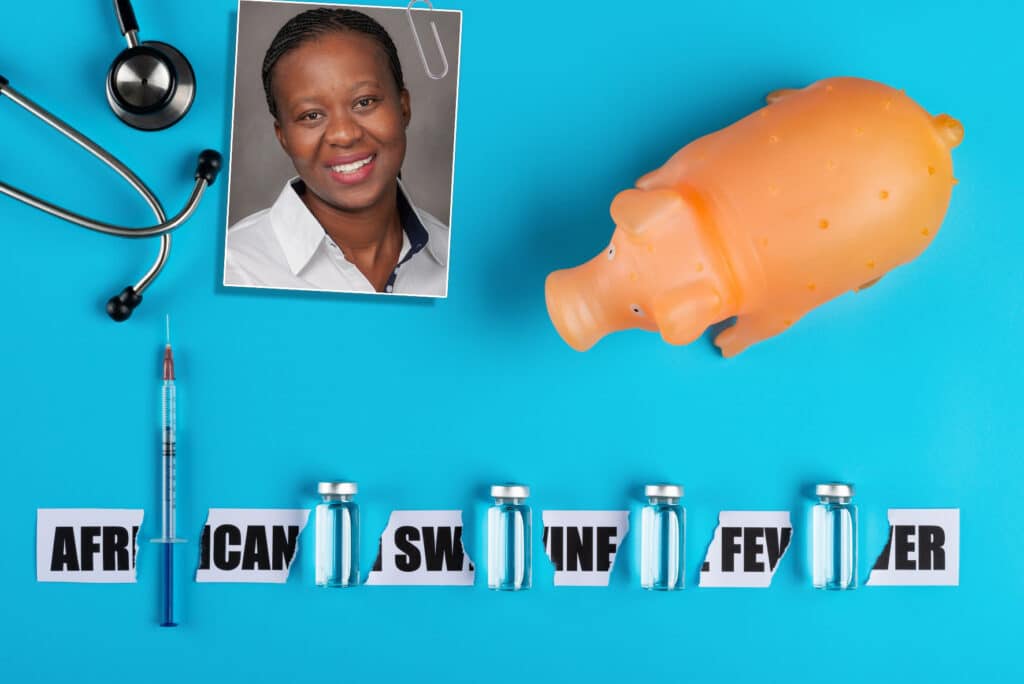by Kgadi Senyatsi
What are the values and principles that you draw on to guide farmers through this tough economic climate?
I wish there was a straight answer, but, unfortunately, it seems like the relevant values and principles just keep changing. However, regardless of how challenging the economy is, embrace the change! The most unstable protein market is the pork market; it is very hard to predict. The winners of these games are often the ones who understand the market quicker and better. Do not wait until it is too late to try and adapt to the changes. If you are a producer that sold to the abattoir and, all of a sudden, you are able to sell directly to the consumer, take that advantage. Do not wait until the pigs have lost condition before you start reducing the population on the farm. Work with the number that you will be able to maintain. In terms of collaboration, there is no better time for farmers to come together than right now – farmers that can purchase inputs as a collective must take this advantage.
Looking ahead, what do you think are the three critical things that will change the outcome of the development landscape in agriculture?
- Food safety
Just like in any other industry or business, the landscape is determined by the consumers/clients. In what is regarded as the middle class, there has been a greater mind shift about food safety. Producers are forced to produce in a certain way to comply with retailers’ requirements, which are informed by customers’ needs. - Biosecurity
The unfortunate aspect of disease outbreaks is that the virus knows no farm size. On one hand – from a distance – one might think that developing farmers are far better off when their herds become infected, as they do not lose much. However, the reality is that they are the ones losing more, because they lose everything they have. They lose their livelihood, they lose the only income they have, and, in many instances, they are never able to restock as they do not reserve funds for such disasters. Disasters such as disease outbreaks will force farmers to produce within the minimum biosecurity standards to guard their only investment. Biosecurity will no longer be an export insurance, but a local requirement and it will enforce itself. - The informal market
The informal market will become more of a playground for the developing sectors. With rising production costs, complicated legislation, and costly compliances, more and more farmers will opt for the informal sector. More consumers will also flock to the informal market for reasons of affordability. The informal market has also improved towards conditions where minimum safety and compliance measures are followed.
How can the industry lean in and enhance its collective resiliency to pivot its trajectory to the next level of sustainability?
As indicated above, livestock industries will be forced to work together to confront the issues at hand. Strategies will need to be developed on how to address disasters and this will be fulfilled as a collective. Disasters arrive one after the other. Drought affects all farmers, not only crop farmers. Pests indirectly affect all farmers, not only crop farmers. Disasters such as floods and veld fires affect different industries in different ways. The strategy to address such disasters will have to be developed as a collective. The crop industry is reliant on the meat industry as the customer, while the meat industry is reliant on the crop industry as a supplier. The industries are all interlinked, one way or another.
Contact Kgadi Senyatsi at kgadi@sappo.org for more information on this topic.
The South African Pork Producers’ Organisation (SAPPO) coordinates industry interventions and collaboratively manages risks in the value chain to enable the sustainability and profitability of pork producers in South Africa.








